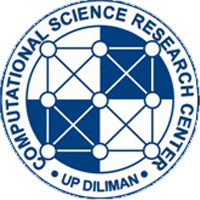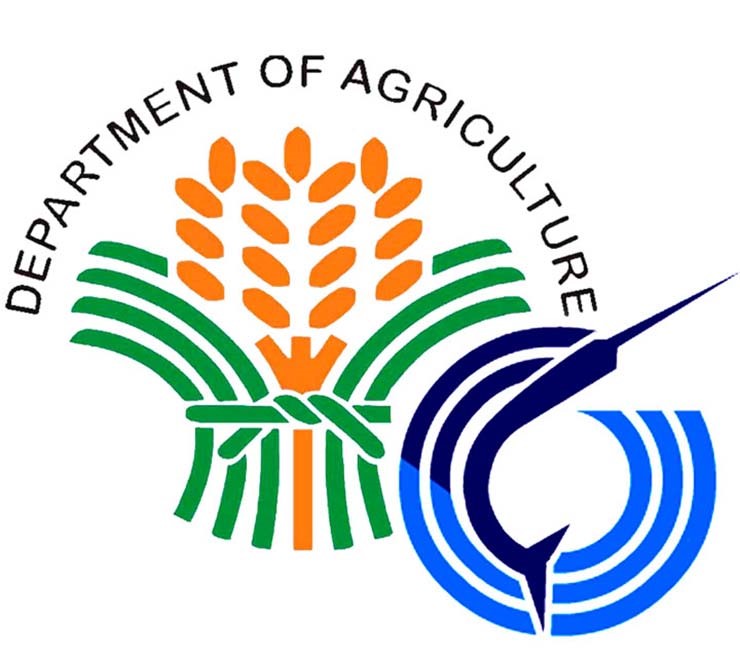Programs Offered
DIPLOMA IN ENVIRONMENTAL SCIENCE CURRICULUM
Objectives
The Diploma in Environmental Science Program aims to (1) equip its graduate with a basic understanding of the environment and (2) develop and enhance the capabilities of laymen as well as decision makers, policy implementers and educators for proper management of the environment
Admission into the Program
Admission into the M.S. Program shall require:
- A Bachelor’s degree in Science or Engineering or their equivalent from a recognized institution o higher learning
- A high degree of intellectual capacity and aptitude for graduate study and research
- Satisfaction of additional University requirements such as a health clearance and other special admission requirements that may be imposed by the Graduate Committee.
General Requirements for Graduation
To qualify for Diploma in Environmental Science, a student must satisfy the following requirements:
- complete at least 20 units of formal graduate courses;
- maintain a cumulative weighted average grade (CWAG) of 2.00 or better at the end of each academic year; and
- complete 1-unit seminar course.
The course requirement includes 17 units of core courses which includes 15 units of lecture courses and 2 units of laboratory courses; 3 units of Specialization Courses; and 1 unit of Graduate Seminar.
Semestral Study Load
The normal study load per semester shall be 9-12 units of formal courses for full-time students and 6- 9 units for part-time students.
Residence Period
The recommended residence period is 1 year. However, the time limit or “maximum residence period” for the completion of Diploma degree requirements shall be no more than 3 years.
Application
Application for admission into the M.S. program must be accomplished in the Official College Application form and accompanied by official transcript of records, written recommendations from two (2) former professors or experts in the field, and the officially prescribed application fee.
All applications shall be submitted to and processed by the Graduate Office, referred to the Graduate Committee concerned for evaluation and endorsed by the latter to the Dean for official action. Please refer to the Graduate Office-College of Science website for details.
Download the document here.
MASTERS IN ENVIROMENTAL SCIENCE CURRICULUM
(Thesis Option)
Objectives
The M.S. (Environmental Science) Program aims to develop students for careers in environmental assessment and planning and in environmental education. The proposed program envisions to fill the need for highly trained environmental scientists in the government, private industries and educational institutions.
Admission into the Program
- Admission into the M.S. Program shall require:
- A Bachelor’s degree in Science or Engineering or their equivalent from a recognized institution of higher learning
- A high degree of intellectual capacity and aptitude for graduate study and research
- Satisfaction of additional University requirements such as a health clearance and other special admission requirements that may be imposed by the Graduate Committee.
- Application for admission into the M.S. program must be accomplished in the Official College Application form and accompanied by official transcript of records, written recommendations from two (2) former professors or experts in the field, and the officially prescribed application fee.
- All applications shall be submitted to and processed by the Graduate Office, referred to the Graduate Committee concerned for evaluation and endorsed by the latter to the Dean for official action.
General Requirement
To qualify for the M.S. (Environmental Science) degree under the Thesis Option, a student must satisfy the following requirements:
- complete a minimum of twenty-four (24) units of formal graduate courses;
- maintain a Cumulative Weighted Average Grade (CWAG) of “2.0” or better in his/her graduate courses at the end of each academic year;
- complete one (1) unit of a graduate seminar course;
- successfully defend a Master’s Thesis in a Master’s Examination and
- submit at least six (6) bound certified copies of the approved Master’s Thesis
Course Curriculum
Every student under the M.S. program shall be required to complete at least twenty-four (24) units of formal graduate courses consisting of eighteen (18) units of core courses and at least six (6) units of specialization or elective courses. (pdf of POS)
Master’s Thesis
- Nature
Each student in the Thesis Option shall be required to submit a master’s thesis which must be scholarly work embodying a supervised scientific research by the student and presenting, in a scholarly manner, a worthwhile contribution to scientific knowledge in Environmental Science. - Thesis Adviser and Reader
After a student in the Thesis option finds a suitable Thesis Adviser, he/she will be assigned a Thesis Reader by the Environmental Science Graduate Committee. In special cases requiring joint advising, a Thesis Co-Adviser may be assigned to the student in addition to a Thesis Reader. Either the Thesis Adviser of Co-Adviser, but not both, may belong to an external institution. The Thesis Reader may also belong to an institution outside UP Diliman. The Thesis Adviser and the Thesis Reader (as well as the Co-Adviser, if any) shall be formally appointed by the Dean upon the recommendation of the Environmental Science Graduate Committee. They shall be responsible for:- advising the students in the preparation of his/her thesis proposal,
- guiding and supervising his/her thesis research, and
- endorsing his/her master’s thesis for defense in Master’s Examination
Thesis Process
- Thesis Proposal
Before the thesis research can be formally started, the student must first prepare a written thesis proposal with the advisee of his/her Thesis Adviser and Thesis Reader (as well as thesis Co-Adviser, if any) and submit it to the Environmental Science Graduate Program Committee for approval. Upon approval of his/her Thesis Proposal, the student may then proceed to carry out his/her thesis research. A certified copy of the approved thesis proposal must be submitted by the Environmental Science Graduate Committee to the Graduate Office of the College. - Defense of Master’s Thesis
Upon completion of the master’s thesis and its endorsement by the Thesis Adviser and the Thesis Reader to the Environmental science Graduate Program committee, the latter shall recommend to the Dean the formal appointment of two (2) Thesis Examiners who, together with the Thesis Adviser and Thesis Reader (plus the Thesis Co-Adviser, if any) shall constitute the Master’s Examination Panel of four (4) or five (5) members. The Thesis Reader or one of the Thesis Examiners shall be designated by the Thesis Adviser to chair the Master’s Examination Panel.
Download the document here.
MASTERS IN ENVIROMENTAL SCIENCE CURRICULUM
(Non-Thesis Option)
Objectives
The M.S. (Environmental Science) Program aims to develop students for careers in environmental assessment and planning and in environmental education. The proposed program envisions to fill the need for highly trained environmental scientists in the government, private industries and educational institutions.
Admission into the Program
- Admission into the M.S. Program shall require:
-
- A Bachelor’s degree in Science or Engineering or their equivalent from a recognized institution of higher learning
- A high degree of intellectual capacity and aptitude for graduate study and research
- Satisfaction of additional University requirements such as a health clearance and other special admission requirements that may be imposed by the Graduate Committee.
- Application for admission into the M.S. program must be accomplished in the Official College Application form and accompanied by official transcript of records, written recommendations from two (2) former professors or experts in the field, and the officially prescribed application fee.
- All applications shall be submitted to and processed by the Graduate Office, referred to the Graduate Committee concerned for evaluation and endorsed by the latter to the Dean for official action.
General Requirement
To qualify for the M.S. (Environmental Science) degree under the Non-Thesis Option, a student must satisfy the following requirements:
- complete a minimum of thirty-three (33) units of formal graduate courses;
- maintain a Cumulative Weighted Average Grade (CWAG) of “2.0” or better in his/her graduate courses at the end of each academic year;
- complete one (1) unit of a graduate seminar course;
- pass the Masteral Preliminary Examination
- pass the Masteral Qualifying Examination
Course Curriculum
Every student under the M.S. program shall be required to complete at least thirty-three (33) units of formal graduate courses consisting of eighteen (18) units of core courses and at least fifteen (15) units of specialization or elective courses. (pdf of POS)
The Preliminary Examination
The Preliminary Examination is a written and/or oral examination that has to be taken by the student in the MS Non-Thesis Option within one (1) year after completing the core courses in his/her program of study. This examination is intended to test the student’s ability to integrate and apply the overall knowledge that he/she has gained from the core courses.
The Qualifying Examination
The Qualifying Examination is an oral examination that must be taken by a student in the Non- Thesis Option after he/she has passed the Preliminary Examination and completed all the course and seminar requirements for the MS (Environmental Science) Non-Thesis Option. In this examination the student is required to give a seminar on a topic covering a recent development in Environmental Science and is examined on his/her (a) grasp of topic as well as related topics and (b) mastery of the basic principles and methods of Environmental Science.
Download the document here.
DOCTOR OF PHILOSOPHY IN ENVIROMENTAL SCIENCE CURRICULUM
Objectives
The Ph.D. (Environmental Science) Program aims to develop students for careers in environmental assessment and planning and in environmental education. The Program envisions to fill the need for highly trained environmental scientists in the government, private industries and educational institutions.
Admission into the Program
- Admission into the M.S. Program shall require:
- A B.S. or M.S. (Environmental Science) degree or their equivalent from a recognized institution of higher learning
- A high degree of intellectual capacity and aptitude for advanced study and research in Environmental Science, and
- Satisfaction of additional university requirements such as health clearance and other special admission requirements that may be imposed by the Environmental Science Graduate Program Committee
- Each application for Admission into the Ph.D. (Environmental Science) Program must be accomplished in the Official College application form and accompanied by official transcript of records, two (2) written recommendation from former professors or experts on the field, and the officially prescribed application fee.
- All applications shall be submitted to and processed by the Graduate Office, referred to the Graduate Committee concerned for evaluation and endorsed by the latter to the Dean for official and formal action.
General Requirement
Qualification for Ph.D. (Environmental Science) degree in the College of Science shall require the following:
- Completion of a Program of Study consisting of at least forty-five units of formal Environmental Science Graduate courses in the case of students admitted into the Ph.D. (Environmental Science) Program without a graduate courses in the case of students admitted into the Ph.D. (Environmental Science) Program without a master’s degree in Environmental Science or of at least twenty-four (24) units of formal graduate courses in Environmental Science in the case of students admitted into Ph.D. program with a master’s degree in Environmental Science
- Maintenance of a Cumulative Weighted Average Grade (CWAG) of 1.75 or better at the end of each academic year until completion of the program of study;
- Passing of the Preliminary Examination based on the core courses in the student’s program of study;
- Passing the Candidacy Examination after completion of at least two-thirds (2/3) of the student’s program of study; Completion of at least one (1) unit of a graduate seminar course in Environmental Science during the student’s course work and presentation of a yearly seminar report during the student’s Dissertation work;
- Completion of a Doctoral Dissertation based on an independent and original research;
- Successful defense of the Doctoral Dissertation based on an independent and original research;
- Submission of a Scientific reprint based on the approved Doctoral Dissertation and endorsed by the Dissertation Committee as an acceptable article for publication in a reputable scientific journal; and
- Submission of at least six (6) bound and certified copies of the approved Doctoral Dissertation.
Course Curriculum
Student entering the Ph.D. (Environmental Science) Program with only a B.S. degree in the program’s discipline or a master degree in a related discipline shall be required to complete at least forty-five (45) units of formal graduate courses. (pdf of POS)
Candidacy Examination
1) Nature
The Candidacy Examination is an oral examination that must be taken by the student after passing the Preliminary Examination and completing at least two-thirds (2/3) of his/her program of study. In this examination the student is required to give a seminar on an approved research topic in his/her chosen field of specialization and is examined on his/her
- grasp of this chosen field of specialization,
- mastery of the basic principles and methods of the discipline, and
- readiness for dissertation research in the chosen field of specialization.
Rating of the Candidacy Examination
The Candidacy Examination shall be rated as either “Passed” of “Failed” by a simple majority vote of the special examination panel. Its result must be officially reported by the special examination panel to the Graduate Office through the Environmental Science Program Graduate Committee within the first working day after the examination. If the student fails the Candidacy Examination, he/she will be allowed to take a second Candidacy Examination within one (1) year after the first examination. Failure in the second Candidacy Examination shall disqualify the student from the Ph.D. (Environmental Science) Program.
The Doctoral Examination
- Standard for the Doctoral
The major requirement for the Ph.D. (Environmental Science) degree is the submission of a doctoral dissertation which must:- embody an original, independent and significant scientific research by the student;
- show the student’s capacity to make a critical evaluation of previous work done in his/her chosen research topic; and
- demonstrate his/her ability to present scientific research findings in a clear, systematic, and scholarly manner
- The Dissertation Proposal
Before the dissertation research can be formally started, the student must first prepare a written dissertation proposal with the advice of his/her Dissertation Committee and submit it to the Environmental Science Graduate Committee for approval. Upon approval of his/her dissertation proposal, the student may proceed to carry out his/her dissertation research under the guidance of his/her dissertation committee. A certified copy of the approved dissertation proposal must be submitted by the Environmental Science Graduate Committee to the Graduate Office.
Defense of Doctoral Dissertation
The Doctoral Examination, in which the student must defend his/her dissertation before the Doctoral Examination Panel, may be held within the College at any mutually convenient time upon the recommendation of the Doctoral Examination Panel, the endorsement of the Environmental Science Graduate Program Committee, and the formal authorization of the Dean.
The Doctoral Examination may be held only if (a) the student has already satisfied the seminar requirement, (b) the dissertation manuscript has been received by each member of the Doctoral Examination Panel at least one (1) month beforehand, and (c) at least four (4) members of the Doctoral Examination Panel are present. The schedule and place of the Doctoral Examination shall be officially announced by the Dean and publicized throughout the College by the Environmental Science Graduate Committee at least two (2) weeks beforehand. The schedule of the Doctoral Examination may be changed only upon the recommendation of the Doctoral Examination Panel, the endorsement of the Environmental Science Graduate Committee, and the formal authorization of the Dean.
The Doctoral Examination shall be public oral examination lasting no less than two (2) hours and no longer than five (5) hours, In accordance with the
examination guidelines of the Environmental Science Graduate Committee, questions may be asked by anybody from the audience during the examination,
but the evaluation and rating of the student’s dissertation shall be done by the Doctoral Examination Panel in closed-door meeting to be held immediately after the Doctoral Examination.
Download the document here.
DOCTOR OF PHILOSOPHY IN ENVIRONMENTAL SCIENCE (OPTION 3/PhD BY RESEARCH) CURRICULUM
Objectives
The PhD by Research programs emphasize independent study without coursework, but hone skills in analytical and critical thinking, as well as synthesis as evidenced by the required number of publications. This option addresses the following objectives:
- provide research-track opportunities to qualified students towards obtaining a PhD degree in a shorter span of time·
- increase the number of environmental scientists who will help address the evolving societal needs and;
- increase the number of publications in Environmental Science that are responsive to the current and emerging issues.
Admission into the Program
Admission requirements
- an M.S. degree in Environmental Science or related field from a recognized institution of higher learning with at least 24 units of graduate courses;
- at least one publication in the field of Environmental Science in a peer-review journal (e.g. Web of Science or Scopus indexed) in the last five years in which the applicant is the primary author as defined by the Institute;
- passing of assessment examination and interview process administered by the Institute;
- presentation of capsule proposal for dissertation research and acceptance of a faculty member of the Institute as prospective dissertation adviser; and
- proof of English proficiency for foreign students whose medium of instruction in the previous degree program is not English, i.e. a score of 6.5 in the International Language Testing System (IELTS) or the equivalent in alternative English Language qualifications approved by the University policy
Graduation Requirements
- Completion of 26 units of Program of Study consisting of:
- 12 units of Env Sci 395 Advanced Studies in Environmental Science to be taken at 4 units interval;
- 2 units of Env Sci 296 Seminar to be taken at 1 unit interval;
- 12 units of Env Sci 400 Ph.D. Dissertation, which can be taken at 3-6 units interval;
- Maintenance of a Cumulative Weighted Average Grade (CWAG) of 1.75 or better at the end of each academic year until completion of the program of study;
- Passing the oral presentation of the Dissertation Proposal;
- Submission of a progress report approved by the Dissertation Adviser and Reader at the end of each semester if enrolled in Env Sci 400;
- Presentation of a Colloquium (dissertation progress report) as prescribed by the Graduate Program of the College of Science;
- Passing the oral presentation and defense of the Dissertation;
- Submission and acceptance of at least two papers from the Dissertation Research in a peer-reviewed journal (e.g. Web of Science /Scopus indexed ) in which the student is the primary author, as defined by the Institute;
- Oral presentation in an international or national conference within the residence period; and
- Submission of bound and digital dissertation manuscript
Description of Courses
- Env Sci 296 Graduate Seminar (lecture), 1 unit (1 hour per week)
- Env Sci 395 Advanced Studies in Environmental Science (laboratory), 4 units (12 hours per week)
- Conduct of directed, specific research on a problem in the field of Environmental Science. Note that Env Sci 395 shall be taken three times and final output shall consist of two submitted manuscripts to an international peer-reviewed journal.
- Env Sci 400 Dissertation, 12 units (can be taken in 3-6 units per semester)
Residence Period
The recommended residence period is three years. However, the time limit or "maximum residence period" for the completion of the degree shall be no more than five years.
Application
Each application for admission into the program must be accomplished in the Official College application form and accompanied by official transcript of records, two (2) written recommendation from former professors or experts on the field, and the officially prescribed application fee. All applications shall be submitted to and processed by the Graduate Office of the College of Science, referred to the Graduate Committee concerned for evaluation and endorsed by the latter to the Dean for official and formal action. Please refer to the Graduate Office-College of Science website for details.
Download the document here.
Course List
CORE COURSES: LECTURE
| Course Number | Course Name | Course Description | Credit |
| Env. Sci. 201 | Fundamentals of Environmental Science I | Fundamental knowledge of the earth’s environment in terms of the properties, structures and process of interrelationship of
the atmosphere, lithosphere, hydrosphere, and the biosphere |
3 units |
| Env. Sci. 202 | Fundamentals of Environmental Science II | Tropical ecosystems such as marine, estuarine, lakes and rivers, forest, island and urban ecosystems | 3 units |
| Env. Sci. 211 | Computational Methods in Environmental Science | Mathematical, statistical and computer methods in
environmental science |
3 units |
| Env. Sci. 212 | Environmental Problems and Issues | Current and prospective environmental problems and issues of critical concern in the context of sustainable development and other management development
strategies |
3 units |
| Env. Sci. 282 | Env’l Planning, Risk, and Impact Assessment | Framework and techniques of environmental planning, risk, and Impact assessment; the Philippine Environmental Impact Statement (EIS) system | 3 units |
CORE COURSES: FIELD/LAB
| Course Number | Course Name | Course Description | Credit |
| Env. Sci. 225.1 | Terrestrial Ecology Sampling Techniques | 1 unit | |
| Env. Sci.226.1 | Aquatic Ecology Sampling Techniques | 1 unit | |
| Env. Sci. 232.1 | Water Quality Sampling Techniques | 1 unit | |
| Env. Sci. 263.1 | Air Quality Sampling Techniques | 1 unit | |
| Env. Sci. 265.1 | Remote Sensing Techniques | 1 unit | |
| Env. Sci. 271.1 | Photonic Techniques | 1 unit |
SPECIALIZATION COURSES
| Course Number | Course Name | Course Description | Credit |
| Env. Sci. 221 | Environmental Biology | Biological aspects of environmental science | 3 units |
| Env. Sci. 227 | Quantitative Ecology | Biological modeling at the population, community and ecosystem levels; quantitative analysis of ecological patterns in time and space | 3 units |
| Env. Sci. 228 | Environmental Biotechnology | The applications of biotechnology in environmental monitoring, assessment, and management | 3 units |
| Env. Sci. 233 | Environmental Toxicology | Xenobiotics in the environment; their sources, pharmacodynamics, mode of action and detoxification | 3 units |
| Env. Sci. 241 | Geological Hazards | Study of common geological hazards and their environmental effects | 3 units |
| Env. Sci. 262 | Water Quality Modeling | Principles and techniques of modeling water quality in aquatic systems | 3 units |
| Env. Sci. 265 | Applications of Remote Sensing to Environmental Science | Applications of remote sensing techniques to environmental monitoring, assessment and planning | 3 units |
| Env. Sci. 271 | Principles of Photonic Techniques for Environmental Science | Light as probe for nondestructive analysis; optical signal processing and image analysis | 3 units |
| Env. Sci. 296 | Graduate Seminar | 1 unit | |
| Env. Sci. 297 | Special Topics in Environmental Science | 1 to 3 units | |
| Env. Sci. 299 | Independent Master’s Study | 3 units | |
| Env. Sci. 300 | Master’s Thesis | 6 units | |
| Env. Sci. 399 | Independent Doctoral Study | 3 units | |
| Env. Sci. 400 | Doctoral Dissertation | 12 units |
EXISTING COURSES IN THE COLLEGE OF SCIENCE
| Course Number | Course Name | Course Description | Credit |
| Bio. 260 | Advanced Ecology | Principles and concepts underlying ecosystem structure
and function in natural environments |
3 units |
| Bio. 262 | Freshwater Ecology | Composition and dynamics of freshwater communities | 3 units |
| Bio. 263 | Terrestrial Ecology | Composition and dynamics of terrestrial communities | 3 units |
| Chem. 203 | Environmental Chemistry | Chemistry applied to the study of the environment, its pollution, and control | 3 units |
| Chem. 203.1 | Environmental Chemistry Laboratory | The chemical analysis of soil, water, and air samples | 2 units |
| Chem. 224 | Aquatic Chemistry | The composition, properties and processes in natural aquatic systems | 3 units |
| Geol. 217 | Hydrogeology | Principles and practice of groundwater exploration and development | 3 units |
| Geol. 274 | Environmental Geology | The application of geologic principles and concepts in environmental and resource assessment and management | 3 units |
| Meteo. 203 | Analytical Methods Meteorology and Oceanography | Mathematical and numerical methods in meteorology and oceanography; principles of
statistical analysis; computer programming |
3 units |
| Meteo. 213 | Climatology | Theory of climate; relative transfer; energy balance; feedback systems; photochemistry of
climatologically active gases; climate variability and change data analysis |
3 units |
| Meteo. 283 | Air Pollution Meteorology | Atmospheric disturbances; diffusion theory; estimation of diffusion from meteorological data; air pollution | 3 units |
| MS 226 | Marine Pollution Chemistry | Sources, sinks and fate of various types of pollutants in the marine environment | 3 units |
| MS 250 | Marine Ecology | Fundamental ecological principles as applied to the marine environment | 3 units |
| MS 280 | Management of Marine Resources | Biological and economic concepts for developing and managing the living resources of the sea | 3 units |
EXISTING COURSES IN OTHER COLLEGES
| Course Number | Course Name | Course Description | Credit |
| Econ. 275 | Natural Resource and Environmental Economics | Analysis of problems in the development and management of exhaustible and renewable resources; environmental problems and
policies |
3 units |
| Econ. 276 | Special Topics in Natural Resource and Environmental Economics | 3 units | |
| Econ. 296 | Urban and Regional Economics | City structure and city systems; urban growth models; location theory;
regional income theory and regional interdependence |
3 units |
| EnE. 203
formerly EnE 201 |
Introduction to Environmental Engineering | Overview of the environmental engineering profession and its coverage which includes air, water, soil, and groundwater pollution sources and its control, laws,
and regulations. This course also tackles global issues such as climate change and disaster risk reduction management and its implications to environment engineering |
4 units |
| Law 175 | Law and Environment | A seminar course dealing with the present-day issues of land
use, energy, pollution and human settlements |
2 units |
| Plan 203 | Land use Planning | Land use planning, resource
use, and development and infrastructure planning |
3 units |
| Plan 222 | Resource use and Development | Effects of resource use and development on social, technical, and economic problems | 3 units |
| Plan 231 | Site Planning | Detailed site analysis and planning | 3 units |
| Socio. 366 | Man and his Environment | Psychological, sociological, and anthropological aspects in the design and management of man’s environment | 3 units |
| Socio. 367 | Man and his Environment II | Political, economic, and philosophical aspects in the design and management of man’s environment | 3 units |
Download the document here









